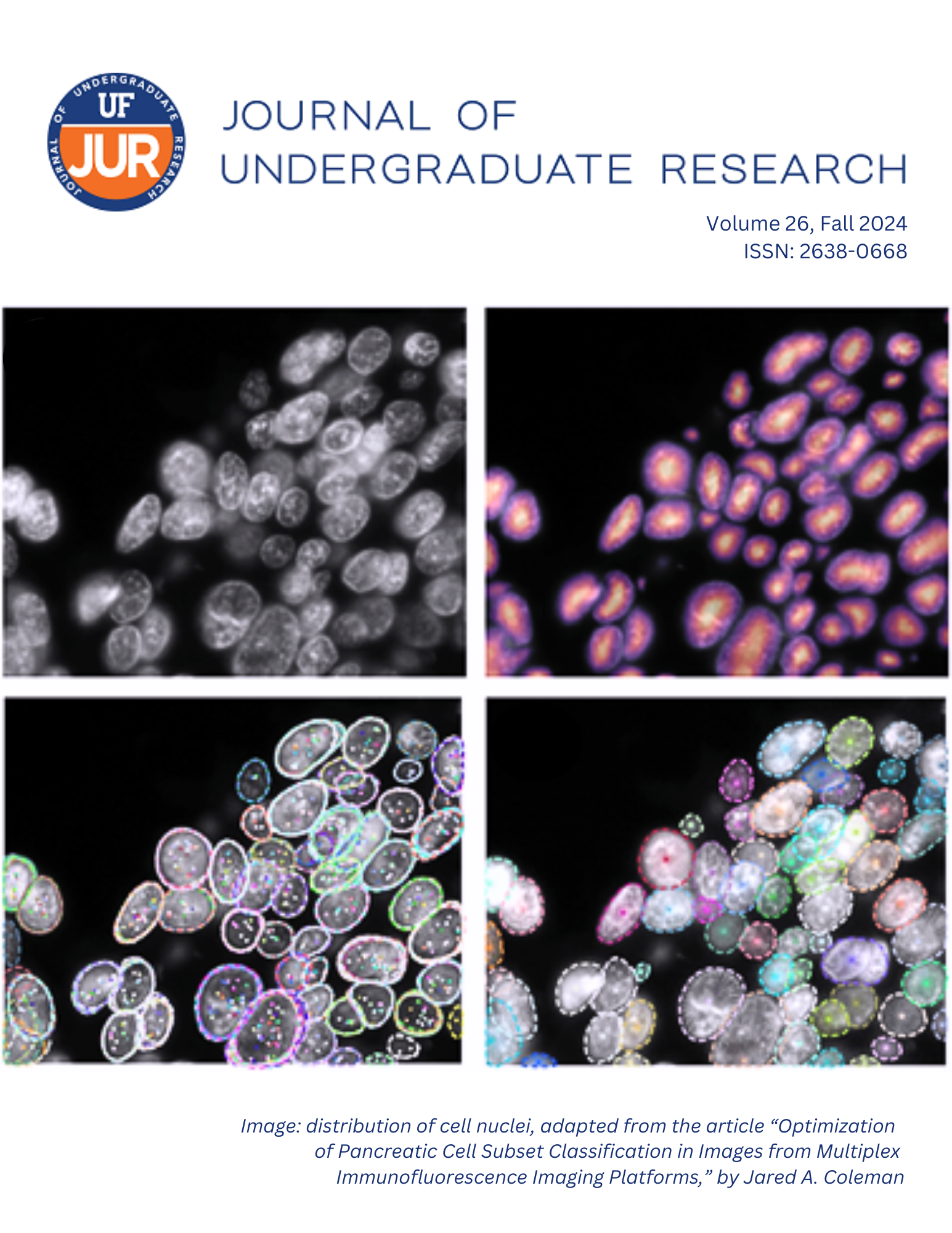Influences of Attachment on Perceptions and Reactions to Partner Drinking
DOI:
https://doi.org/10.32473/ufjur.26.135548Keywords:
alcohol consumption, attachment theory, romantic relationships, drinking behaviorAbstract
This study explored the relationship between alcohol consumption within romantic relationships and the perception of a partner’s drinking problem, considering attachment. Attachment theory identifies three primary attachment styles: secure, anxious, and avoidant. It was hypothesized that the number of times a partner got drunk in the last year would be positively associated with the person’s perception of a drinking problem and that these perceptions and reactions would vary according to the individual's attachment orientation. Specifically, it was anticipated that those who are more anxiously attached would be more sensitive to their partner's drinking behaviors, perceiving them more negatively and engaging in more punitive actions, whereas avoidantly attached individuals would minimize the significance of their partner's drinking issues. 754 participants were surveyed via Qualtrics to assess frequency of partner drinking, concern about partner drinking, punishment for partner drinking, reward for partner sobriety, and attachment levels. Results showed that frequency of a partner’s drinking was related to concern about partner drinking, and that association was stronger for those with more anxious and avoidant orientations. Additionally, partner drinking was associated with more punishment behaviors for those with higher levels of anxious attachment, as well as those with higher levels of avoidant attachment. However, partner drinking was not related to reward for non-drinking based on attachment. Lastly, the perception of a partner’s drinking mediated the relationship between perceived partner drinking and punishment, with the indirect effect being stronger for higher levels of insecure attachment. Building upon these findings, future research should explore interventions tailored to different attachment orientations to better address the negative impacts of alcohol consumption within romantic relationships.
Downloads
Published
Issue
Section
License
Copyright (c) 2024 Sydney Dick

This work is licensed under a Creative Commons Attribution-NonCommercial 4.0 International License.
Some journals stipulate that submitted articles cannot be under consideration for publication or published in another journal. The student-author and mentor have the option of determining which journal the paper will be submitted to first. UF JUR accepts papers that have been published in other journals or might be published in the future. It is the responsibility of the student-author and mentor to determine whether another journal will accept a paper that has been published in UF JUR.

